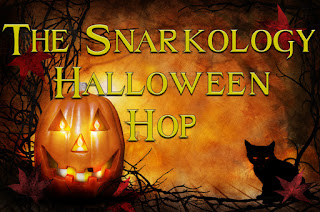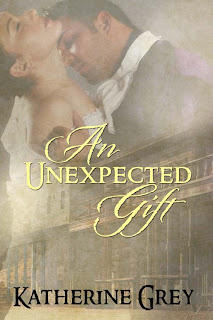Writing blurbs, or what makes a book sell?
So... a friend asked on facebook today for advice about how to write a book blurb. Being a former marketer, amongst (many) other things, I thought I ought to have something to say, so I sat down to try and write a few pointers. When the few pointers turned into something of an essay, I decided this was worth making more public than a private message in facebook. So, for any writers who have ever struggled with the question of just how much to give away on the back cover, here are my thoughts...
1) Don't give too much away.
You are not writing a blurb to give your reader every detail about your characters, world and back story. They will find that out when they read the book, and too much detail in the short space of a blurb makes most of us dizzy! You don't have to tell the reader everything now. The blurb just needs to give the core facts which tell them whether this is a book they will want to buy. In most cases that means the genre, the general setting, the protagonist's identity, and their challenge. Spend the most time on the last one, because that more than anything is what will make the reader want to read the book. Give your hero or heroine a nice, meaty obstacle (or three) so that the reader can't guess for themselves how your character will overcome it. As an example, the book I'm reading at the moment, Elizabeth George's 'Careless in Red' attracted me because of the hero's plight. Inspector Lynley has recently lost his wife and when he stumbles across a body on the beach - traumatic enough in itself for a grief-stricken hero - he inadvertently becomes a suspect in a murder investigation. With a scenario like that, who wouldn't read on?
2) Don't keep too much under wraps.
Occasionally new writers go the other way, on the basis that too much detail is off-putting, and/or they're afraid that if they put the details of their magnum opus out there, someone else will steal their great idea. This is an exaggeration, but not by much, of some vague blurbs I've read: 'Susan faces the biggest challenge of her life and everything is conspiring to prevent her from living her dream. Will the forces of darkness prevail, or will our daring heroine overcome the terrors that nearly destroy her?' Huh? What is this book about? When and where is it set? It could be a school story, fantasy or romance, or just about anything, really. Make sure the reader has at least one firm hook on which they can peg their answer to the vital question: 'What is this book?'
3) Know when to stop.
This is probably the thing I struggle with most when writing a blurb. Obviously you can't give away the ending, or the reader won't have any reason to pick up the book at all, but aside from that, how do you know how to end a blurb (other than with a subtler variant of, 'buy this book to find out more')? I browsed the blurbs at my publisher, The Wild Rose Press and noticed that they mostly follow a pattern in keeping with its stance as a romance publisher which insists on including both the hero's and heroine's perspectives. The first paragraph introduces us to the heroine, including a few details of her ordinary life, but mostly, the reason why she really needs the hero... and the reason she thinks she can't have him! Rachel Brimble's 'Transatlantic Loving' is a great example of this - in just a few short lines we know exactly why Lisa is drawn to Aaron, and why she's going to spend most of the story believing he's bad news. The second paragraph hints at the story from the hero's point of view, but obviously that's less relevant if you're writing in a different genre, or if your romance is first-person or wholly from the heroine's viewpoint. That's it. Once we know who we're reading about, what they need, and what's stopping them getting it, there's nothing else we need to know, except the ending, which is why these blurbs work so well.
4) Test your ideas.
Hand your blurb to family and friends (and strangers if you dare) and ask them, 'Would you buy this book?' But don't stop there. Always add the vital question, 'Why?' That's what will tell you whether your taster is giving them a true picture of what's inside the cover. If your story is a gruesome, action-packed thriller with just the tiniest hint of a love angle, and the response is, 'because it sounds sweet', your blurb probably needs some more work!
5) Let it go.
With so much to think about, it's easy to end up overthinking, like the famous author who is supposed to have spend a morning taking out a comma... and an afternoon putting it back in. Yes, the blurb is important, but as long as it points readers in the right direction - to buying your book, or at least browsing through it or downloading a sample - what will really sell your book is the quality of the writing inside. So if your time is limited, it's the writing itself that should claim the lion's share of your attention. Talking of which, I have a story to get back to, so I'll leave you to your blurb.
Have fun, and feel free to share your thoughts, examples and any good blurb-writing advice you've received.
1) Don't give too much away.
You are not writing a blurb to give your reader every detail about your characters, world and back story. They will find that out when they read the book, and too much detail in the short space of a blurb makes most of us dizzy! You don't have to tell the reader everything now. The blurb just needs to give the core facts which tell them whether this is a book they will want to buy. In most cases that means the genre, the general setting, the protagonist's identity, and their challenge. Spend the most time on the last one, because that more than anything is what will make the reader want to read the book. Give your hero or heroine a nice, meaty obstacle (or three) so that the reader can't guess for themselves how your character will overcome it. As an example, the book I'm reading at the moment, Elizabeth George's 'Careless in Red' attracted me because of the hero's plight. Inspector Lynley has recently lost his wife and when he stumbles across a body on the beach - traumatic enough in itself for a grief-stricken hero - he inadvertently becomes a suspect in a murder investigation. With a scenario like that, who wouldn't read on?
2) Don't keep too much under wraps.
Occasionally new writers go the other way, on the basis that too much detail is off-putting, and/or they're afraid that if they put the details of their magnum opus out there, someone else will steal their great idea. This is an exaggeration, but not by much, of some vague blurbs I've read: 'Susan faces the biggest challenge of her life and everything is conspiring to prevent her from living her dream. Will the forces of darkness prevail, or will our daring heroine overcome the terrors that nearly destroy her?' Huh? What is this book about? When and where is it set? It could be a school story, fantasy or romance, or just about anything, really. Make sure the reader has at least one firm hook on which they can peg their answer to the vital question: 'What is this book?'
3) Know when to stop.
This is probably the thing I struggle with most when writing a blurb. Obviously you can't give away the ending, or the reader won't have any reason to pick up the book at all, but aside from that, how do you know how to end a blurb (other than with a subtler variant of, 'buy this book to find out more')? I browsed the blurbs at my publisher, The Wild Rose Press and noticed that they mostly follow a pattern in keeping with its stance as a romance publisher which insists on including both the hero's and heroine's perspectives. The first paragraph introduces us to the heroine, including a few details of her ordinary life, but mostly, the reason why she really needs the hero... and the reason she thinks she can't have him! Rachel Brimble's 'Transatlantic Loving' is a great example of this - in just a few short lines we know exactly why Lisa is drawn to Aaron, and why she's going to spend most of the story believing he's bad news. The second paragraph hints at the story from the hero's point of view, but obviously that's less relevant if you're writing in a different genre, or if your romance is first-person or wholly from the heroine's viewpoint. That's it. Once we know who we're reading about, what they need, and what's stopping them getting it, there's nothing else we need to know, except the ending, which is why these blurbs work so well.
4) Test your ideas.
Hand your blurb to family and friends (and strangers if you dare) and ask them, 'Would you buy this book?' But don't stop there. Always add the vital question, 'Why?' That's what will tell you whether your taster is giving them a true picture of what's inside the cover. If your story is a gruesome, action-packed thriller with just the tiniest hint of a love angle, and the response is, 'because it sounds sweet', your blurb probably needs some more work!
5) Let it go.
With so much to think about, it's easy to end up overthinking, like the famous author who is supposed to have spend a morning taking out a comma... and an afternoon putting it back in. Yes, the blurb is important, but as long as it points readers in the right direction - to buying your book, or at least browsing through it or downloading a sample - what will really sell your book is the quality of the writing inside. So if your time is limited, it's the writing itself that should claim the lion's share of your attention. Talking of which, I have a story to get back to, so I'll leave you to your blurb.
Have fun, and feel free to share your thoughts, examples and any good blurb-writing advice you've received.



Comments
Post a Comment